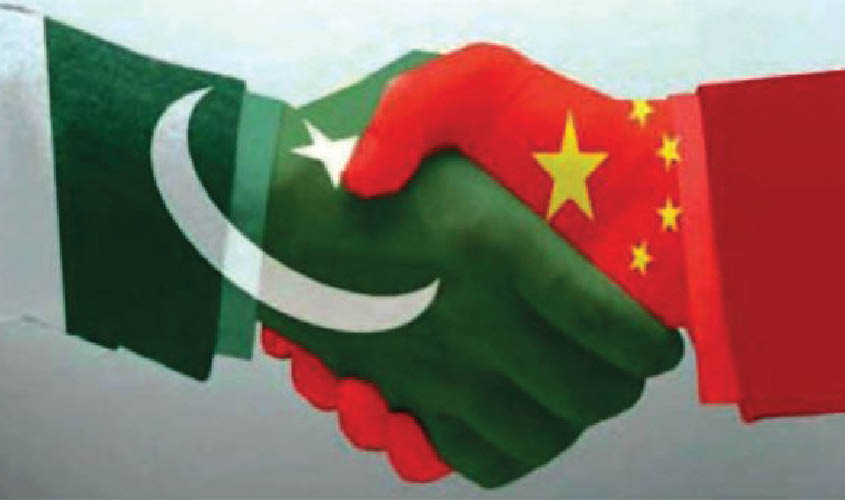Yan Xuetong, an influential Chinese strategic analyst close to Xi Jinping, said in 2016 that China had only one real ally, Pakistan.
Notwithstanding the thaw supposedly occasioned by the “Wuhan spirit” and seemingly portrayed by the exchange of a number of high level bilateral visits, Beijing’s response to the dastardly suicide car-bomb attack on the convoy transporting 2,500 Central Reserve Police Force (CRPF) personnel between Jammau and Srinagar on 14 February, was telling. It highlighted China’s unwavering support to Pakistan while pressuring India to “talk” to Pakistan. China’s response to the terrorist attack in which over 40 personnel were killed and which was promptly condemned by countries around the world, was also tardy.
As on previous occasions, Beijing issued separate anodyne statements without naming Pakistan or suggesting action against the Jaish-e-Mohammed (JeM). Observing that peace and stability is essential in the region, the Chinese Foreign Ministry spokesman, on 21 February, expressed the hope that “Pakistan and India will exercise restraint, engage in dialogue and realise the soft landing of the relevant issues as soon as possible”. Implying pressure he reiterated there would be no change in China’s position of vetoing moves in the UN Security Council for designating Masood Azhar as a terrorist. Prof Yan Xuetong, director of the Institute for International Relations at Beijing’s Tsinghua University and an influential Chinese strategic analyst close to Xi Jinping, had on 9 February 2016, told the New York Times that “China has only one real ally, Pakistan”.
Additionally, two articles in the official Global Times on 17 and 20 February 2019, accused the Indian media of “igniting” “blind anger” against China for “allying with Pakistan in shielding terrorists” and, instead, asked India to “provide solid facts and proofs for banning Azhar”. It clarified that China is cautious on the issue as “observers worry that blacklisting Azhar could be used by India to increase its military pressure on Pakistan, thus risking exacerbating tensions between the two countries”. Almost hinting at a mediatory role for Beijing, Liu Zongyi, a senior fellow of the Shanghai Institutes for International Studies, was quoted as saying that India should “resort to quiet diplomacy instead of extensively directing aggressive rhetoric to pressure Beijing” and then “the Azhar issue could have been better addressed”. The other article asserted that India was fanning “radical nationalism” against China and hoped this would not impact China’s economic interests.
China’s position continues the line it has been insisting on with Indian interlocutors at various levels ever since Chinese President Xi Jinping announced his strategic China Pakistan Economic Corridor (CPEC) in Islamabad in April 2015. Chinese leaders have been unequivocal in saying that “India must ease tensions with Pakistan, resolve the Kashmir issue and only then look to improved ties with China”.
While the CPEC potentially closely fuses Chinese and Pakistani military capabilities, China has also claimed stakes in Kashmir. It is simultaneously securing its long term investments in Pakistan. Referring to Pakistan’s plans to upgrade the Constitutional status of the disputed Gilgit-Baltistan region, the Dawn on 7 January 2016, quoted a senior “government” official from Gilgit-Baltistan as saying it is intended to give “legal” cover to proposed Chinese investments, since “China cannot afford to invest billions of dollars on a road that passes through a disputed territory claimed both by India and Pakistan”. Chinese official media despatches have, incidentally, described Gilgit-Baltistan as part of Pakistan since 1984.
China has, on separate occasions, laid claim to Kashmir. An official Chinese map published in 1954 and still used in Chinese school textbooks, depicts territories taken by “imperialist” powers and which China has declared it would “recover”. Ladakh and Arunachal Pradesh are among these territories. On at least five occasions since 1992, China has published maps and issued statements depicting Kashmir as part of China. Soon after China’s intrusion in the Depsang Plains in Ladakh in April 2013, the influential high-circulation official mouthpiece of the Communist Youth League (CYL), the Zhongguo Qingnian Bao (China Youth News) on 14 May 2013 elaborated that the Ladakh region “has been part of Tibet since ancient times” and dubbed it “Little Tibet”. Chinese Foreign Minister Wang Yi, at his press conference in New Delhi in August 2014, asserted that the stapled visas issued by China were a “unilateral” “flexible” “goodwill gesture”, reiterating Beijing’s stand that the status of Arunachal Pradesh and Jammu and Kashmir remain disputed. China has also had contacts with “separatists” like Mirwaiz Umar Farooq and Syed Ali Shah Geelani. Pakistan and China’s interests converge in Kashmir.
In the backdrop of growing comprehensive ties and Chinese assistance to Pakistan in honing military capabilities against India (my article in The Sunday Guardian, 3 February 2019, China plans to sell Pak an aircraft carrier and integrate it militarily), it is probable that their intelligence and military exchanges have increased after 14 February. Interesting is that paralleling the growth of Chinese telecom companies Huawei and ZTE—both closely tied to China’s security and military establishments—China, in 2015, upgraded its defence attaché in Delhi to the rank of major general. He is from the Signals Intelligence Department. China has defence attachés in 113 countries, but major generals only in 12!
China’s response to the JeM’s terrorist attack on 14 February, notwithstanding the “peaceful disengagement” at Doklam and the Wuhan meeting, makes clear its attitude towards India. Together these are compelling reasons to review and restrict the ingress of Chinese telecom companies into India’s critical telecommunications sector, crucially when 5G is being rolled out. Chinese investments, the entry of Chinese companies and China’s subversive activities like propagating Confucius Institutes must be subject to stringent security review.
Jayadeva Ranade is a former Additional Secretary in the Cabinet Secretariat, Government of India and is presently President of the Centre for China Analysis and Strategy.

